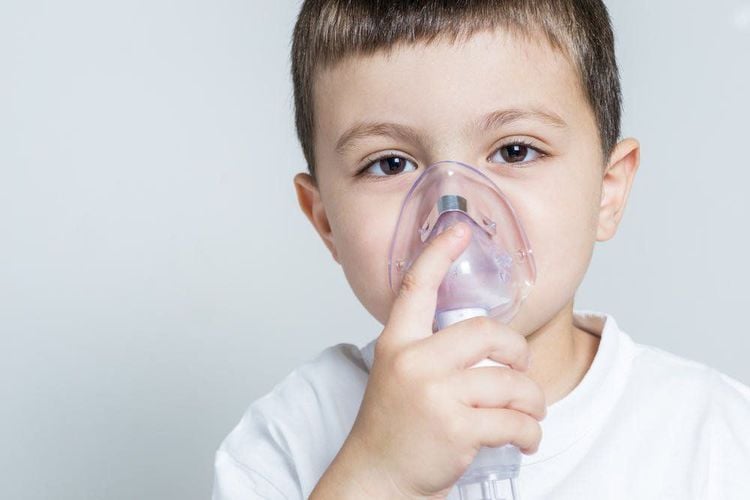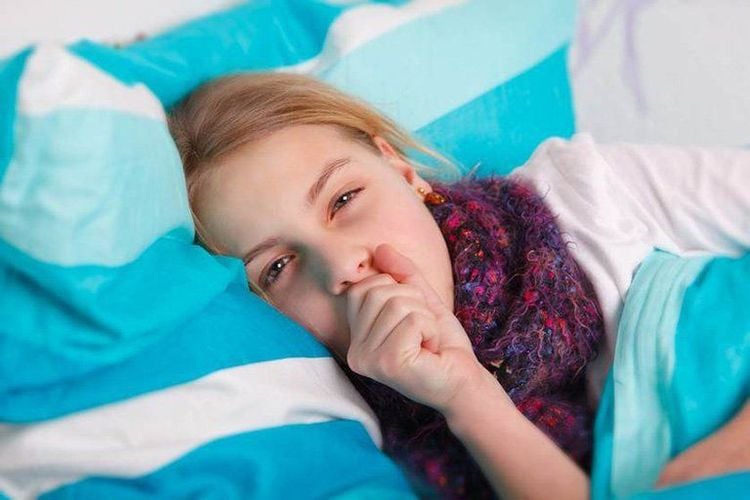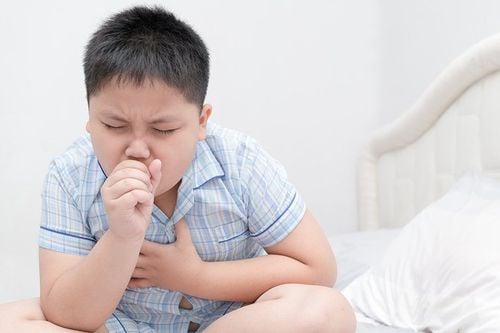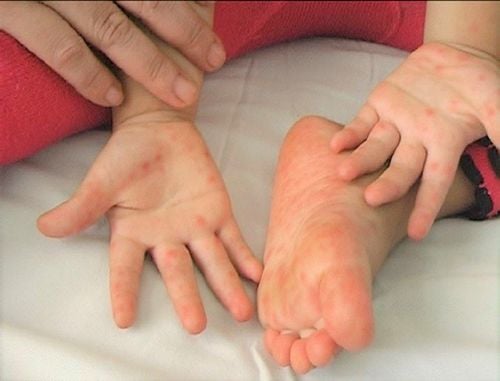Reviewed by Master’s Degree Holder, Pediatrician Nguyen Nam Phong – Department of Pediatrics and Neonatology, Vinmec Phu Quoc International General Hospital.
Like many parents, you might worry about your child’s sleep issues, such as coughing or choking at night, which can disrupt their rest. This concern often grows when you hear them coughing or gasping for air.
Children aged 5 to 8 may cough more at night, leading to sleepless nights for the whole family. Let’s explore the common causes of nighttime coughing or choking for the children and how to address these issues.
1. Why Children Aged 5 to 8 Cough at Night
If your child frequently coughs or chokes in their sleep, it might be a sign of sleep apnea. Sleep apnea is a serious and potentially life-threatening sleep disorder. It can occur when enlarged tonsils or adenoids (tissue at the back of the throat near the nose) block the upper airway during sleep, making it hard to breathe.
When your child’s throat muscles relax at night, these tissues can temporarily obstruct airflow to the lungs. Sleep apnea is most common in children aged 5 to 8, when their tonsils and adenoids are proportionally largest compared to their airways.
Coughing may also indicate conditions such as asthma, allergies, colds, or other illnesses; especially when they occur persistently, frequently with pain or discomfort.
If coughing that makes it hard to breathe lasts more than a week, occurs suddenly, is accompanied by fever, or follows choking on an object, parents should take the child to a medical facility immediately for diagnosis and treatment to avoid complications.

2. Common Types of Coughing or Choking in Children Aged 5 to 8
Parents need to know when a cough can be managed at home and when medical care is necessary. Common types include:
- Severe Coughing: Often caused by upper airway irritation. In most cases, these coughs arise from problems such as swelling in the larynx or trachea. Because young children have narrower airways, swelling can make it harder for them to breathe. This also explains why children under the age of 3 face higher risk for lung cancer - as their airway is a lot smaller compared to other age groups. Croup often occurs suddenly, especially at night, and may include a harsh, barking cough and a wheezing sound when the child inhales.
- Whooping Cough is an infection in the upper airway caused by Bordetella pertussis bacteria. It causes children to continuously cough, making it hard to breathe between coughs. After a coughing fit, the child may inhale deeply, producing a “whooping” sound. Other symptoms include a runny nose, sneezing, coughing and mild fever. This disease can manifest in any age group, but it is most serious in infants not vaccinated against pertussis, a part of DTaP (diphtheria, tetanus, and pertussis). Whooping cough spreads easily, so all children should receive the whooping cough vaccine at 2 months, 4 months, 6 months, 15 months, and between 4–6 years of age.
- Wheezing with Cough: A child exhibiting whistling sound while exhaling may have lower airway damage. This symptom can occur with diseases such as asthma, or bronchiolitis caused by a virus. Wheezing can also result from an airway blockage by a foreign object. A child can start coughing after inhaling food or a small object, thus, parents should pay close attention and seek medical help immediately if their airway gets blocked by foreign objects

- Nighttime Coughing: Coughing often worsens at night. In colds, mucus from the nose or sinuses can drip into the throat, causing coughing during sleep. It would be a problem if the children cannot sleep due to the cough. Asthma can also trigger nighttime coughing as airways become more sensitive and easily triggered at night.
- Daytime Coughing: Activities or cold air can aggravate coughing during the day. Ensure there are no triggers at home, such as air fresheners, pets, or smoke (especially cigarette smoke).
- Cough with Fever: Mild fever and coughing often indicate a common cold. However, high fever (above 39°C) with coughing might signal pneumonia and requires immediate medical attention.
- Cough with Vomiting: Intense coughing can trigger a gag reflex, causing vomiting. A child with a cold or asthma may also vomit due to swallowing mucus into the stomach, causing nausea. This is usually not a concern unless vomiting is frequent or persistent.
Persistent Coughing: Coughs caused by colds may last weeks. Asthma, allergies, or chronic infections can also cause prolonged coughing.
3. Diagnosing Cough or Choking in Children Aged 5 to 8
If you are concerned about your child’s cough, you can call and consult a doctor. Depending on the type of cough, accompanying symptoms, and duration, doctors can make the diagnosis for your children.
Many hospitals and private clinics now offer telemedicine services, saving time for parents. These video calls enable doctors to observe and listen to the child’s cough. Usually, this is enough to make some diagnosis, excluding serious diseases and determine if further treatment is necessary.

4. Managing Nighttime Cough or Choking in Children Aged 5 to 8
If parents suspect their child may have sleep apnea, they should consult a doctor for appropriate guidance. The child may need to be monitored and treated by sleep specialists, who will work with ENT (Ear-Nose-Throat) doctors to evaluate the child’s tonsils or any growths to determine if they pose serious health risks.
If the child coughs or has trouble breathing at night due to illness, try elevating their head with extra pillows or giving cough medicine as prescribed by a doctor. Providing extra fluids and using a humidifier during sleep are also effective methods parents can consider. If the cough persists unusually long—potentially a sign of asthma—take the child to a doctor for an asthma evaluation.
Coughing is one of the most common symptoms in sick children. While it often worries parents, it usually isn’t a sign of a serious condition. In fact, coughing is a natural reflex that helps protect the airways, throat, and chest by clearing mucus, phlegm, or irritants from the respiratory tract.
To arrange an appointment, please call HOTLINE or make your reservation directly HERE. You may also download the MyVinmec app to schedule appointments faster and manage your reservations more conveniently.
Articles refer to sources: babycenter.com, kidshealth.org, mom.com














